Jeb Bush makes stops in Upstate South Carolina

Republican presidential hopeful Jeb Bush is coming back for South Carolina for a series of events in the Upstate. The former Florida governor is starting his swing Tuesday with a Salvation Army event in Greenville at 1 p.m. At 3 p.m., he stops by Spartanburg’s Beacon Drive-In, a restaurant that has become a must-see for presidential campaigns as they visit South Carolina’s northwestern areas. At the end of his day, Bush is stopping in Rock Hill for a town-hall meeting at The Magnolia Room. Bush was in South Carolina last week, making stops in several cities and giving a speech at The Citadel in which he called for the U.S. to send more troops to the Middle East to fight the Islamic State group. Republished with permission of The Associated Press.
State lawyers call proposed legislative districts ‘bizarre’
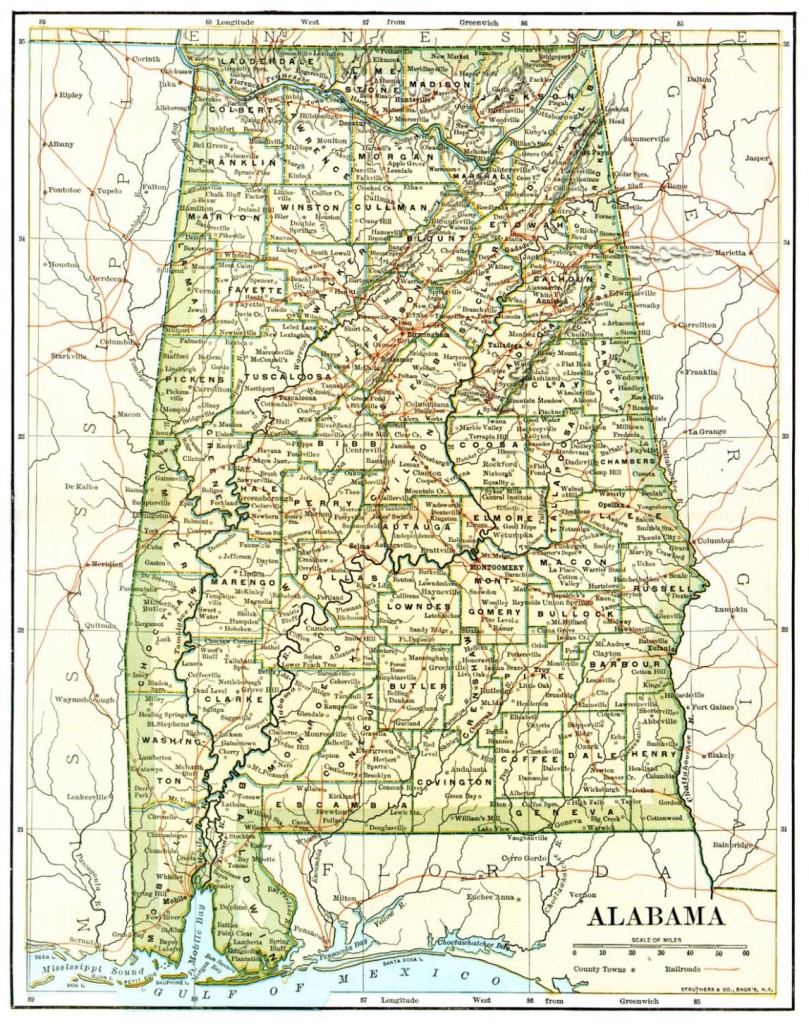
The attorney general’s office said alternate legislative maps suggested by black legislators show that Alabama lawmakers made proper choices in drawing new district lines. State lawyers in a November court filing criticized the alternate maps as “bizarre” as the two sides continued a legal back-and-forth over the state’s legislative lines. Black members of the Alabama Legislature filed a federal lawsuit saying the GOP-controlled Alabama Legislature segregated and “stacked” black voters into designated districts, preventing them from influencing elections elsewhere. State Republicans said the lines, which were approved by the U.S Department of Justice, were fairly drawn so that districts were equally sized and varied in population by plus or minus 1 percent. A three-judge panel asked the plaintiffs to try their hand at their own map without increasing the variance in district population size. Attorneys for the state argued the rival plan linked unlike communities. “While Plaintiffs’ plans fall within (plus or minus 1 percent) and while some of the black-majority districts in their plans have lower black majorities, they could not reach that result without bizarre districts and retrogression to reach that point,” lawyers for the attorney general’s office wrote. The case is back before a three-judge panel after the U.S Supreme Court sent it back for additional review. Lawyers for black lawmakers in a Monday court filing said the state’s current districts were drawn to hit “unlawful racial targets.” If the map is tossed, the state will have to draw new lines and hold new elections. Republished with permission of The Associated Press.
$100,000 grant to fund student health screenings

Officials say a $100,000 grant will be used to fund health screenings for students in 17 Alabama counties. The Alabama Department of Economic and Community Affairs said in a statement Tuesday that the screenings are being funded by the Appalachian Regional Commission. Officials say Pelham-based nonprofit Sight Savers America is expecting to conduct 70 health screenings this school year and aims to reach about 14,000 students in Talladega, Jefferson and Limestone counties among others. Officials say nurses will address any urgent medical needs during the screenings and provide detailed reports for follow-up care. Republished with permission of The Associated Press.
Birmingham Council postpones Uber vote as 5 councilors no-show
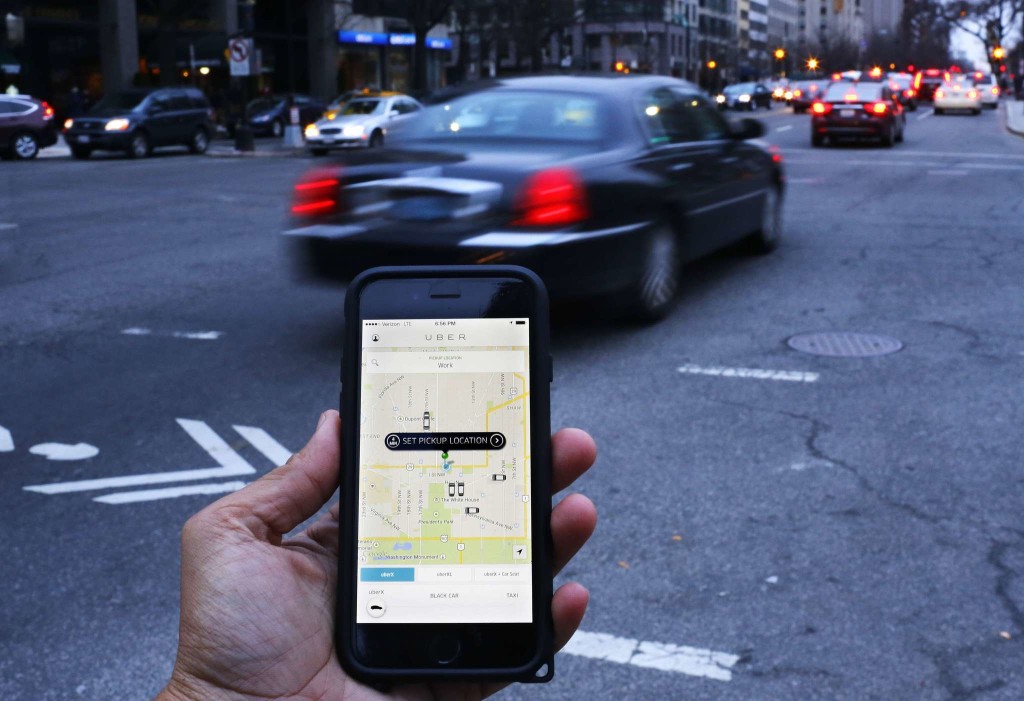
A scheduled vote on whether to approve new rules allowing ride-hailing services like Uber and Lyft to operate in the Magic City was postponed Tuesday afternoon for lack of a quorum required to vote. Council President Johnathan Austin, Councilman Steven Hoyt, Councilwoman Sheila Tyson, Councilwoman Lashunda Scales and Councilman Marcus Lundy did not attend the meeting, requiring members to adjourn before hearing the ride-hailing item on the agenda. The Birmingham City Council was slated to take up an ordinance that would allow so-called ridesharing firms to set up shop in the city by next month, along with other issues. Council members Jay Roberson, Valerie Abbott, Kim Rafferty and William Parker were in attendance. They waited about an hour before telling an increasingly restive audience the meeting would have to be scuttled. The delay may push back the beginning of Uber’s operations in Birmingham until 2016. “It’s disappointing that Birmingham residents have to continue waiting for safe rides and economic opportunity,” said Uber spokesperson Kaitlin Durkosh Tuesday. “We look forward to the draft ridesharing regulations from last week’s Committee of the Whole meeting crossing the finish line next Tuesday, so that we can bring ridesharing to Birmingham in advance of the New Year,” said Durkosh. Some Birmingham residents took to the “Magic City Movement” Facebook page established to support Uber’s efforts to voice their displeasure with the councilors’ actions. “Collusion,” is what user Sam Lewis chalked it up to. “Everyone in the BCC ignoring the people’s voice on this extremely important matter deserve to be reprimanded by not receiving your vote during the next election.” Another group member, Kris Reeves, opined: “These people, who were put in charge to lead our great city, are holding us back. I constantly defend Birmingham, but things like this make it extremely difficult. They are keeping us the laughingstock of major US cities.” Planned votes on several road improvement projects and re-upping the contracts of city consultants also were casualties of the no-show. Council President Austin said the members missed the vote because “most people are out of town visiting family for Thanksgiving.”
Pass or fail: The surprising rankings of our congressional delegation
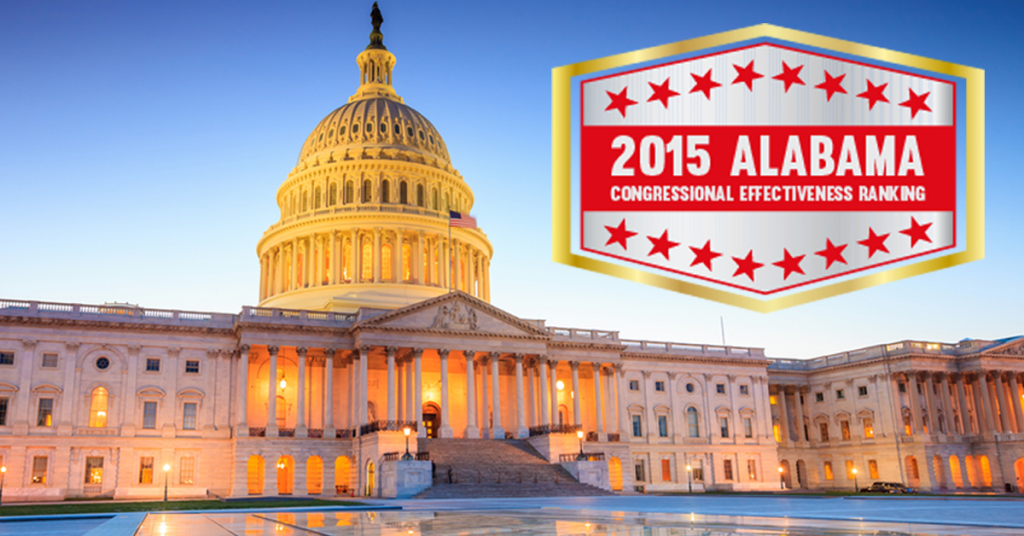
According to a November Gallup poll, public approval of Congress has fallen to its lowest approval rating this year, just two percentage points higher than its all-time low — sitting at an abysmal 11%. Which is why Alabama Today decided it was a good time to see whether or not Alabama lawmakers are actually “earning” their low approval ratings or if the American public has simply had its fill of partisan politics, with our first Congressional Effectiveness Ranking. The results? A mixed bag. In a red state we certainly would not have guessed the #1. In theory, all members of Congress work hard, but as a whole Alabama lawmakers don’t have much to show for 2015. Only one member — Alabama’s sole Democrat in Congress, Terri Sewell — has even seen a bill become law, proving the point you do not need to be in the majority party to be an effective lawmaker. The effectiveness score is simple – take the percentage of bills/amendments sponsored by each lawmaker over the number that went on to pass committee. Should Members tie, a higher-weight is given to any bills that pass the floor or become law. While most of Alabama’s representatives are electorally safe heading into next fall’s elections, voters do not always consider just how effective the incumbent members are. Here’s how the Alabama delegation ranks from most-effective to least-effective members of Congress. See where your representative ranks on the list: #1 U.S. Rep. Terri Sewell (AL-07) Effectiveness Score: 63% Total Sponsored Bills/Amendments: 8 Bills Passed Committee: 5 Serving Since: 2011 Legislation/amendments sponsored in the 114th Congress: H.Amdt.832 to H.R.1737 Most recent action: Agreed to by voice vote on 11/18/15. H.Amdt.754 to H.Amdt.734 Most recent action: Agreed to by voice vote on 11/03/15. H.Amdt.753 to H.Amdt.734 Most recent action: Agreed to by voice vote on 11/03/15. H.Amdt.540 to H.R.2822 Most recent action: Agreed to by voice vote on 6/25/15. H.R.2867: Voting Rights Advancement Act of 2015 Most recent action: Referred to the Subcommittee on the Constitution and Civil Justice on 7/9/15. H.R.1781: Workforce Development Tax Credit Act of 2015 Most recent action: Referred to the House Committee on Ways and Means on 4/14/15. H.R.1780: Helping Working Families Afford Child Care Act Most recent action: Referred to the House Committee on Ways and Means on 4/14/15. H.R.431: To award a Congressional Gold Medal to the Foot Soldiers who participated in Bloody Sunday, Turnaround Tuesday, or the final Selma to Montgomery Voting Rights March in March of 1965, which served as a catalyst for the Voting Rights Act of 1965. Most recent action: Became Public Law No: 114-5 on 3/7/15.
Greg Reed: Gratitude, happiness, and America’s founding
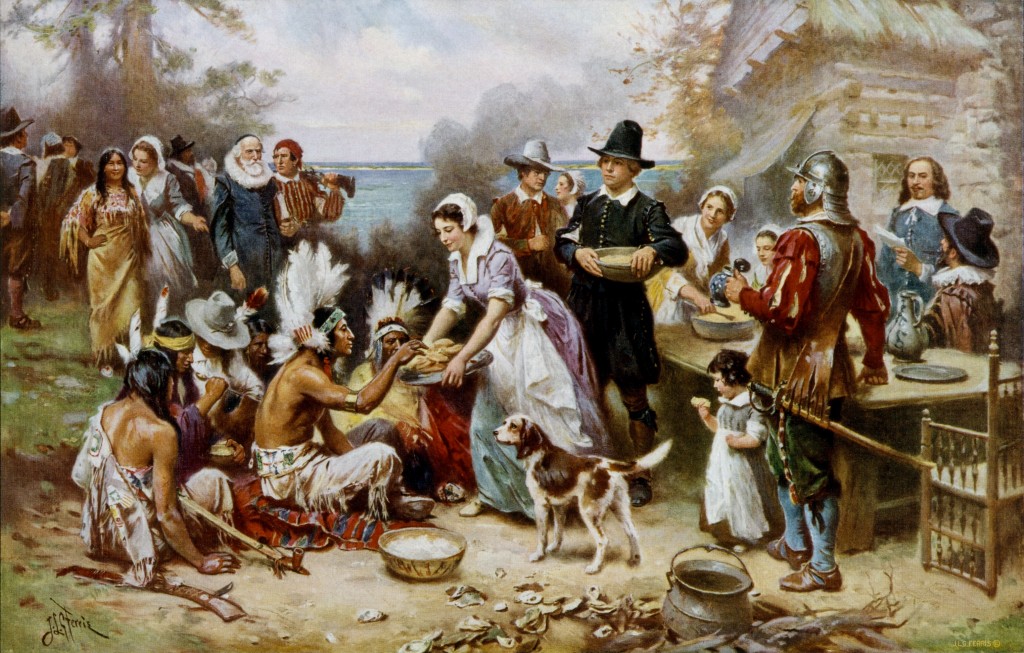
Thanksgiving is a great time for catching up with family members, watching football, and eating turkey, dressing, and pumpkin and pecan pies. The food is so good, you might even excuse your Uncle Jim’s fifth monologue on why Verne and Gary are the worst sportscasters since the dawn of television, as your family prepares for the Iron Bowl on Saturday. It is a wonderful time of year. But have you ever wondered how Thanksgiving came to be? You might have a vague recollection of some early American settlers (the Pilgrims) with shoe buckles and big black hats celebrating a Thanksgiving with Native Americans, but your memory may go foggy after that. The story of Thanksgiving indeed began with the early harvest celebrations of the Pilgrims at Plymouth Colony near Cape Cod, Massachusetts. The Pilgrims were an interesting mix of adventurers and preachers, but most were committed Protestant Christians who split from the established Church of England in their homeland. In 1609, this group had been driven from England by religious persecution and landed on the shores of the Netherlands. The Dutch culture proved similarly inhospitable, however, so the Pilgrims sailed in the Mayflower to North America in 1620, where a Native American named Squanto helped this band of European settlers. Even with Squanto’s aid, nearly half the group perished from disease and famine in the first winter. But the survivors reasonably saw the unexpected help of Squanto as a divine blessing, without which they might all have died, and therefore celebrated God’s mercy with a harvest festival. In 1776, at the start of the Revolutionary War, the Continental Congress set aside two days for solemn prayer and fasting, and in 1777, Samuel Adams helped draft a resolution calling for a “day of Thanksgiving” on December 18th to celebrate the colonists’ victory over the British at Saratoga. In 1778, the Congress approved a resolution setting aside December 30th for a day of thanksgiving, as it “pleased Almighty God through the Course of the present year to bestow great and manifold Mercies on the People of these United States.” After the Revolutionary War, presidents George Washington, John Adams, and James Madison all issued proclamations setting aside certain days for thanksgiving to God during the early years of our Republic. Typical was the language of Washington’s proclamation in 1789: “I do recommend… the 26th of November next to be devoted by the People of these States… in most humbly offering our prayers and supplications to the great Lord and Ruler of Nations and beseech him to pardon our national and other transgressions– to enable us all, whether in public or private stations, to perform our several and relative duties properly and punctually–to render our national government a blessing to all the people.” In 1941, President Franklin Roosevelt signed legislation officially marking the fourth Thursday in November as the national holiday of Thanksgiving, enshrining in law a practice our nation has carried on since the days of the Pilgrims. This year, I am deeply thankful for the Christian heritage our ancestors left to the people of America. Despite what the “politically correct” crowd might tell you, the Founding Fathers never intended our country to be free from religion. We are a nation founded explicitly on Judeo-Christian notions of law. As the Declaration of Independence says, we are “endowed by our Creator with certain unalienable Rights, that among these are Life, Liberty and the pursuit of Happiness.” This Thanksgiving, I encourage you to slow down and consider how God has blessed your “pursuit of happiness.” We live in a land of material and spiritual abundance, secured by the hard work of men like George Washington and protected now by the bravery of our American soldiers. It is a tremendous honor to serve the people of Alabama in the State Senate. Yet the essential parts of my “pursuit of happiness” in life are found in the blessings of my dear wife and three sons, who keep me humble in the best of days and laughing in spite of the hardest hours, while my faith in Christ is the bedrock of everything. As G.K. Chesterton wrote, gratitude is indeed happiness doubled by wonder. Greg Reed is the Alabama Senate Majority Leader and represents Senate District 5, which is comprised of all or parts of Winston, Walker, Tuscaloosa, Jefferson, and Fayette counties.
State Supreme Court won’t revisit open-carry rule

The state’s highest court will not hear a challenge to an Alabama law allowing residents to openly carry firearms, according to an announcement last week. The Alabama Supreme Court issued the denial in response to a challenge brought by the City of Jacksonville, after a man convicted of violating a state law which prohibits “carrying a pistol on premises not one’s own or under his control” was exonerated by the high court, which also struck down the law as constitutional. A Calhoun County man named James Dean Tulley was confronted by a security guard outside a bank in Jacksonville while carrying a gun, which led to Tulley’s original charges. The Supreme Court reversed that conviction in September and denied Jacksonville’s appeal last week, making the ruling final, for now. The City of Jacksonville asked the court to re-hearing the case. In a written brief to the court, the cit agreed with the justices that the law is unconstitutional. They argued, however, the court should not make their ruling retroactive and affirm Tulley’s conviction. The nine-member panel denied the city’s request for a new hearing and upheld their reversal of the conviction under the law. J.D. Lloyd, an attorney for Tulley, said he believes the ruling represents the end of the review for both the case and the law. “Everything should be over. I’m not sure what the City’s going to try to do, but Jason should be done for good with this case. There’s really nothing else that they can do,” he said.
Marco Rubio new TV ad focuses on his father and the American Dream
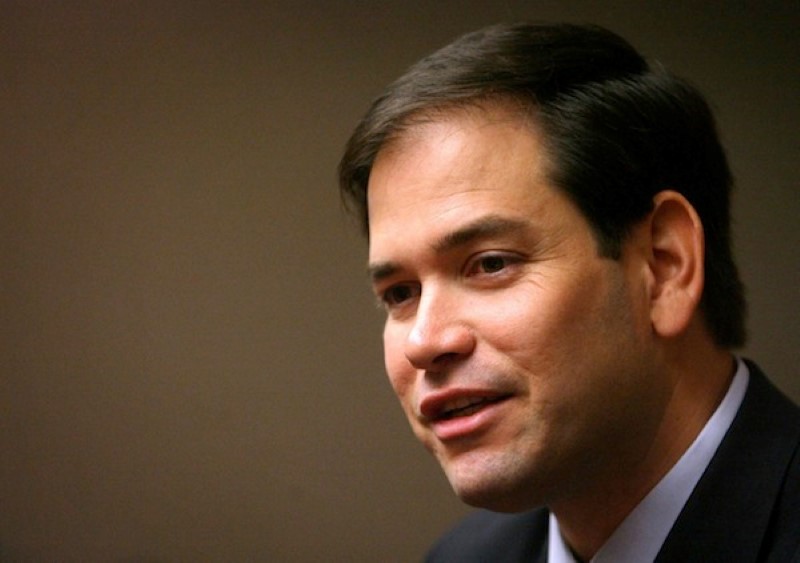
Marco Rubio’s basic stump speech always features him speaking movingly about his father working hard as a bartender when he first moved to America to provide for his children, in an ode to the American Dream. The Rubio campaign is now releasing a television ad featuring Rubio speaking about his father, called, “Bartender.” It’s scheduled to begin airing in Iowa on Thanksgiving and in New Hampshire starting next week. “I remember the sounds of his keys jingling at the front door of our home, well past midnight as he returned from another long day at work,” Rubio says, in a speech taken from his announcement that he was running for president in Miami’s Freedom Towers last April. “When I was younger, I didn’t fully appreciate all he did for us. But now, I more fully understand. You see, my father was grateful for the work he had, but that was not the life he wanted for his children. He wanted all the dreams he once had for himself to come true for us. He wanted all the doors that closed for him to open for me. So my father stood behind a small portable bar in the back of a room for all those years, so that I could stand behind this podium in front of this room and this nation. That journey from behind that bar to behind this podium, that’s the essence of the American Dream.”
Ted Cruz soars to 2nd place behind Donald Trump in new Iowa poll
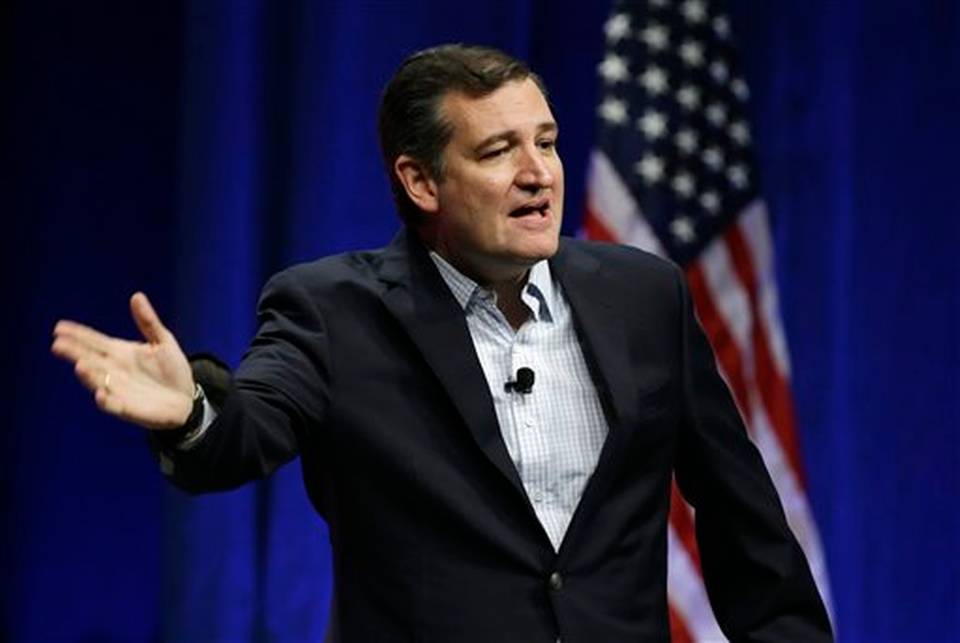
Donald Trump leads in Iowa in aQuinnipiac poll released on Tuesday, but barely — and his closest competitor is not Dr. Ben Carson, but Texas Senator Ted Cruz. Trump narrowly leads Cruz, 25-23 percent, a doubling of support for Cruz since the last Quinnipiac poll in Iowa taken last month. Carson is third with 18 percent, and Marco Rubio is fourth with 13 percent. Rand Paul is next at 5 percent, then Jeb Bush at 4 percent. Carly Fiorina is at 3 percent. “Last month, we said it was Dr. Ben Carson’s turn in the spotlight. Today, the spotlight turns to Sen. Ted Cruz of Texas,” says Peter A. Brown, assistant director of the Quinnipiac University poll. “The Iowa Republican Caucus has become a two-tiered contest: Businessman Donald Trump and neurosurgeon Ben Carson lead on the outsider track, and Sens. Ted Cruz and Marco Rubio lead among party insiders.” Brown adds that “the other candidates will need miraculous comebacks to crack the top tier with slightly more than two months before the voting begins.” Other interesting tidbits into the minds of Iowa likely Republican Caucus participants: They oppose 81 — 15 percent allowing Syrian refugees into the U.S. and oppose 82 — 13 percent allowing them into Iowa. Republicans support 73 — 22 percent sending U.S. ground troops to fight ISIS in Iraq and Syria and say 83 — 9 percent that the U.S. and its allies are losing the fight against ISIS. A total of 88 percent of Republicans are “very worried” or “somewhat worried” about the possibility of a terrorist attack in the U.S. similar to the attack in Paris. “One thing almost all Iowa Republicans agree upon is that Syrian refugees should not be allowed into the United States or into Iowa,” Brown said. From November 16 — 22, Quinnipiac University surveyed 600 likely Iowa Republican Caucus participants with a margin of error of +/- 4 percentage points. Live interviewers call landlines and cellphones.


